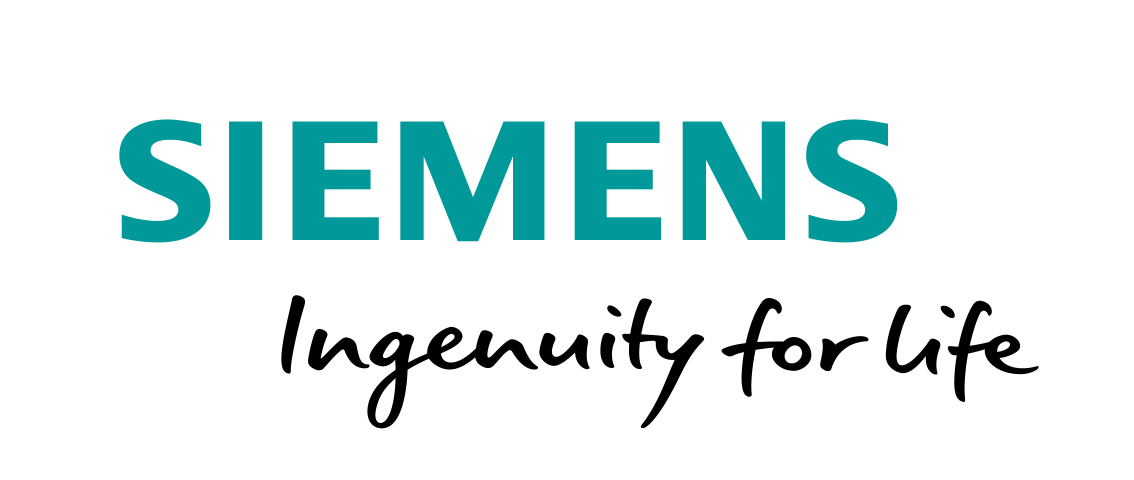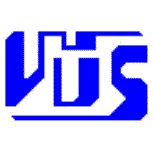Michael Schreckenberg
Bio
Michael Schreckenberg, born 1956 in Düsseldorf, studied theoretical physics at the University of Cologne, where he got his PhD 1985 in statistical physics, Habilitation in 1991 on neural networks. 1994 he changed to the University of Duisburg-Essen where he became in 1997 the first (German) professor for Physics of Transport and Traffic. Since more than 25 years he is working on the analysis, modelling, simulation und optimization of transport systems in large networks, especially road traffic, and the influence of human behavior on it. His current activities include self-driving vehicles, the reaction of drivers on information, individual navigation systems, Car-2-Car communication and the efficiency of road works.
Abstract - "Traffic research between science and application"
Over a long period traffic research has not been in the central focus of science. The developments were mainly driven by car manufacterers. This situation is now changing rapidly. It is only since a few years that it became obvious that the natural sciences can contribute considerably to the future problems of IST. The activities comprise traffic (jam) dynamics, information systems and driver’s reaction, traffic forecaste as well as self-driving and connected vehicles. In close cooperation to industry and end users, several concepts and their impact are constructed and analysed. The role of the the different players in this field has changed enormously with an open-end result.
Martin Russ
Bio
Martin Russ became Managing Director of AustriaTech in 2011. AustriaTech is the “Mobility Agency” of the Austrian Ministry of Transport, Innovation & Technology and it follows a long-term strategy towards sustainable transport– and mobility services and solutions, like Intelligent Transport Systems (ITS) and e-mobility. The federal company works in partnership with Austrian infrastructure operators, mobility service providers, and industry, as well as research facilities and public authorities. Martin Russ studied Regional and Transportation Planning at Vienna Technical University. As a consultant and transport engineer he gained broad experience in transportation and mobility planning and mobility technology. From 2005 to 2008 he was responsible for the Austrian Transport Technology Research Program at the Austrian Research Promotion Agency (FFG). Between 2008 and 2011 he was senior advisor for innovation and technology at the cabinet of the Minister of Transport and Innovation and Technology. In addition he acts a general secretary of ITS Austria (the national multimodal mobility platform), is a member of the coordinating committee of European ITS Nationals. He is a member of the Supervisory Board of ERTICO – ITS Europe.
Abstract - “The Austrian Urban Mobility Labs (UML) Initiative – Experimental environments for effective research”
Due to the dynamic development of cities and the surrounding regions, problems in the field of transport and mobility lead to growing challenges on all levels. At the same time urban and suburban regions promise new opportunities as “hot spots” for innovations. Since research projects face limited possibilities and frameworks, they seldom reach their full potentials with regard to objectives of the mission oriented research within the Austrian Technology Research Programme “Mobility of the Future”. Therefore further activities are needed to
· Create spaces of opportunity for new approaches and an open climate for innovation
· Integrate user and key actors continuously in research activities
· Embed research better in political strategies and measures
· Identify and remove implementation barriers (early on) and actively shape necessary frameworks
· Develop integrative and effective measures and cluster of projects
· Build up research infrastructure and harness it synergetically
· Establish long term “learning spaces” for the impact of RTI within mobility systems etc.
Urban Mobility Labs complement mobility related research- and innovation projects through new, local and regional structures within urban space. Experimental approaches and “real experiments” not only enhance the practical relevance of the projects, but improve the support of the outcome diffusion within the social practice as well as in the transition processes. This intervention opens the innovation process further and fills the gaps within the Austrian innovation(funding)landscape.
The development of Urban Mobility Labs
The initiative “Urban Mobility Labs” (UML), driven by the Federal Ministry of Transport, Innovation and Technology (bmvit), was launched in the context of the research programme „Mobility of the Future“. The initiative supports the setup of innovative and experimental environments for research, testing and implementation of solutions and measures in the field of transport and mobility. This should happen by incorporating the scientific community, citizens and stakeholders in politics and administration as well as other groups. The emerging structural frame shall enhance the efficiency and effectiveness of research, technology and innovation.
A comprehensive pool of knowledge regarding the feasibility of Urban Mobility Labs was generated in an exploration phase which started in 2014. Finally five Urban Mobility Labs were tendered in May 2016. Their aim is to support the setup and the long-term functionality as well as the running of several UML as „carrying structure“ for research, technology and innovation in the field of transport and mobility. Following Urban Mobility Labs where chosen and will meet this challenge:
· aspern.mobil LAB, Vienna
· Graz grenzenlos, Graz
· MobiLab OÖ, Linz/Steyr
· Thinkport Vienna,
· UML SALZBURG, Salzburg
Floridea Di Ciommo

Bio
Floridea Di Ciommo, PhD in transport and urban planning at ENPC-Paris Tech and UPM, and MSc. at Bocconi University-Milan is a lead researcher on Sustainable Mobility and Travel Behaviour. She is chair of Transport and Equity Analysis TEA Cost Action TU1209, chair of Behavioral processes committee of National Academies of Sciences, Engineering, and Medicines-Transport Research Board, and member of and a member of other two TRB Committees: Travel Behaviour and Value, and Women Issues in Transportation. She has an extensive experience in EU research projects and she regularly contributes to the EU H2020 Work Program for social and economic issues. She authored several publications on Multimodal transport around Europe (CITY-HUBs: Sustainable and Efficient Urban Transport Interchanges. CRC Press, Transport Intermodal Interchanges: Socio-Economic Impacts at Lille European Metropolis, Intermodal exchange stations in the city of Madrid. Transportation), travel behavior modeling, data analysis, accessibility, and equity in transport. She has extensively worked on the nexus between Travel behaviour, social variables and equity issues. She is co-editor of the:
- Special Issue on Transport and Equity Analysis of Transport Reviews with Yoram Shiftan, professor at Technion,
- with Karen Lucas, Karel Martens and Ariane Dupont of forthcoming Elsevier book on Measuring transport equity, and
- with Yoram Shiftan and Ariane Dupont of the Special Issue on Equity tools and Transport: bridging EU-US perspectives for the European Transport Research Review.
She leaded and participated in more than 20 international, European and national projects on transport policy evaluation, urban planning, and multimodal travel behavior model.
For any additional information: Floridea Di Ciommo, google scholar profile.
Abstract - "Crossing ITS data analysis with people needs"
Currently, travel behavior frameworks adopt an utility-based approach including preferences and choices. However, choice context is more and more complex. Therefore, constraints and needs have a growing impact on travel behavior.
Relevant studies have shown that:
1. Transport system is essential to fulfill human different needs in terms of safety, security, health, employment, and social stability, in particular among low-income households.
2. Failing to achieve these needs may result in physical, social, geographical, and economic social exclusion.
3. But, eliciting real needs of people is very challenging, because it can be difficult for them to express what they find necessary and important for improving their quality of life.
The reasons why specific needs might not be satisfied should be investigated by activity type (i.e. work, study, daily shopping, occasional shopping, health care, and visits to family and friends) and activity attribute levels (i.e. location, travel time to join them).
This research will adopt a fresh and innovative methodological approach by using existing smart cards data and mobility survey data oriented to identify the mobility patterns of inhabitants and their satisfaction or dissatisfaction related to their travel attributes (i.e. travel time, travel cost, parking availability, crowdedness in public transport, public transport quality of service, potential destinations, additional transport modes availability). The users’ satisfaction level jointly with the identified time threshold associated with each typology of trip (i.e. including origin, destination, purpose, mode, and distance) will identify when the needs of users, are covered or not.
In general, the structure of the smart card database includes data recorded by each type of smart card on users’ travel pattern and personal data. Once defined the structure of the database of Smart cards, we have created tools to detect all data that are invalid (i.e. canceled operations) and, thus, defined aggregated data flows of mobility. At this stage, we have designed a process of automatic analysis similar to what developed Munizaga et al. through algorithms (2012).
The results obtained in various cities where the smart cards system has been implemented allow highlighting situations where the problem of the satisfaction of needs of transport is related to the current transport supply, and the transport networks distribution.
This would indicate to planners/policy makers where to direct their interventions, in order to help people accomplishing their needs.
Uwe Reiter
Bio
Dr Uwe Reiter graduated from the University of Karlsruhe with a Diploma in Computer Science. With respect to his ensuing scientific work at the IfV (Institute for Transport Studies), he received a PhD in Civil Engineering from the University of Karlsruhe. In 1995 he moved to the UK to work at the Imperial College for Science, Technology and Medicine (University of London) as a post-doctoral fellow first, and as Rees Jeffrey’s Lecturer in Transport and the Environment later. He set up a teaching and research programme in transport and the environment with a focus on the sustainable development of transport.
Back in Germany in 1998, he started working as senior consultant for PTV in Berlin and became head of the Berlin branch in July 1999. Since then he is leading a group of engineers and transport planners working in a series of projects in the areas of traffic engineering, transport planning, planning of public transport, transport telematics, transport management and traffic control. Initially, most of these projects were related to Berlin and the north-east of Germany. In 2006 he became the Project manager for the Transport Master Plan for the State of Qatar, worked and lived in Qatar for 18 months and successfully finalised this challenging project together with a number of other projects in the area. On his return to Germany in 2008, he was additionally awarded the responsibility for PTV’s International Consultancy and is since then coordinating projects and activities worldwide, e.g. in Bulgaria, Croatia, Cyprus, Germany, India, Italy, Jordan, Romania, Turkey, UAE and others.
He has considerable experience in managing large scale projects in different countries and is fluent in four European languages: German, English, Italian, French.
Abstract - “The Future of Mobility – the City of Tomorrow”
Future planning of transport systems and services will be an evolvement of today’s practice, of today’s tools and techniques. Future planning will be integrated and interactive. It will be integrated through including the planning of urban spaces and land-use on one hand, transport infrastructure and services on the other hand. And it will take into considerations what impacts both urban planning and transport planning will have on transport demand and mobility itself but also what impacts it will have on economic development, on the social development, e.g. accessibility by all members of the population, availability of urban space and what impacts it will have on the environment. Future planning will be interactive: decision makers, stakeholders, the general public will be able to participate in the planning process interactively and will directly and immediately see what impacts planning decisions have on transport, economic, social and natural environment.
Future Transport Management will integrate all available data of transport supply, for road transport, for public transport, for non-motorised transport and all new forms of transport. Transport management will combine data and information about this supply with current demand and with forecasted demand. Numerous additional sources of data are already or will become available in short time and will allow a more precise and correct representation of current mobility. Transport management will optimise transport infrastructure and services to best meet the identified demand, provide more capacity on public transport, optimise allocation of public space to the different uses, motorised or non-motorised, e.g. through optimising traffic signals. And transport management will influence transport demand, will direct users to the best means to serve their individual mobility needs, be it at that particular time, be it by suggesting different departure times.
But finally, the most important change in the future of mobility will be the development of future demand. New means of transport will become available in short time, shared mobility, electric vehicles, autonomous vehicles, and even more, a combination of these developments. The combination of these developments will result in an absolute transformation of future mobility. In only a few years, the mobility market will not be anything that we were used to. Individual ownership of the car will be more and more replaced by shared means of transport, be it for individual use, be it for pooling trips of different users. Less and less vehicles will be needed, space in our cities that today is used for motorised vehicles parked for at least 90% of the time, will be freed for other uses. Still, these new developments that can better be called disruptive technologies need to be planned, managed, steered in the right direction, in order to have positive impacts for the society and the urban environment as a whole. This will guarantee numerous other positive effects and benefits, will improve the economic, the social and the natural environment and finally contribute to increasing the quality of life.
And of course, both long-term transport planning as well as short-term transport management will take these disruptive developments into account.
Lorna Uden
Bio
Professor emeritus Dr. Lorna Uden published over 200 papers in conferences, journals, chapters of books and workshops. Her research interests include Learning Technology, Web Engineering and Technology, Human Computer Interaction, Groupware, Activity Theory, big data, innovation , E-business, Knowledge management, E-government, Semantic web, Web services , big data, service innovation, social media, Service Science, Internet of Things ( IOT) , intelligence science, intelligent transport systems and Problem-Based Learning (PBL). She co-authored the book, ‘Technology and Problem - Based Learning’, published by IGI publishers. Professor Uden travels round the world to give workshops in problem Based learning and research seminars to help students to be smart.
Professor Uden is program committee member for many international conferences and workshops. She is on the editorial board of several international journals. She is founder and editor in chief of the International Journal of Web Engineering and Technology (IJWET) and the International Journal of Learning Technology (IJLT), published by Inderscience, UK.
Professor Uden is adjunct professor at VIT, India and also visiting professor to universities in Australia, Brazil, China, Colombia, Finland, India, Italy, Japan, South Korea, Malaysia, Mexico, New Zealand, Slovenia, Slovakia, Spain, South Africa and Taiwan. She has been keynote speaker at many international conferences. On the international front, she collaborates widely with colleagues worldwide in paper writing. She is the founder of the KMO and LTEC conferences. Professor Uden is also the conference chair of KMO2017 and LTEC 2017.
Professor Uden travels widely to give seminars on research methods, Problem Based learning, big data, e learning, Information system design, Innovation, knowledge management, service science, IOT and many other subjects. She is actively helping colleagues internationally to write papers as well as the external examiner to the university of West Indies and City University in Hong Kong. Professor Uden is on the panel of reviewers for research proposals for Hong Kong government. She has being external PhD examiner for many universities throughout the world.
Abstract - "Design intelligent transport systems for user experience"
Intelligent Transportation Systems (ITS) is an expanding and diverse subject, with some of its constituent parts overlapping or converging. It typically involves the Internet of Things (IOT). According to Transparency Market Research, the global connected car market will reach USD 131.9 billion by 2019. The aim of an effective ITS is to make road transport, and its interfaces with other transport modes, more environmentally friendly, more efficient, safer and more secure. However, the design of effective ITS is not trivial.
The design of an effective ITS involves many different stakeholders and their different needs and values. It is important to take a holistic approach to create an effective ITS that meets the values of the different users and also a coherent user experience for them. A new approach is needed taking cross-discipline collaboration between design, technology, and business. This paper describes a model that can be used to design intelligent transport systems for users’ experiences that meets the needs and values of the different users.









































